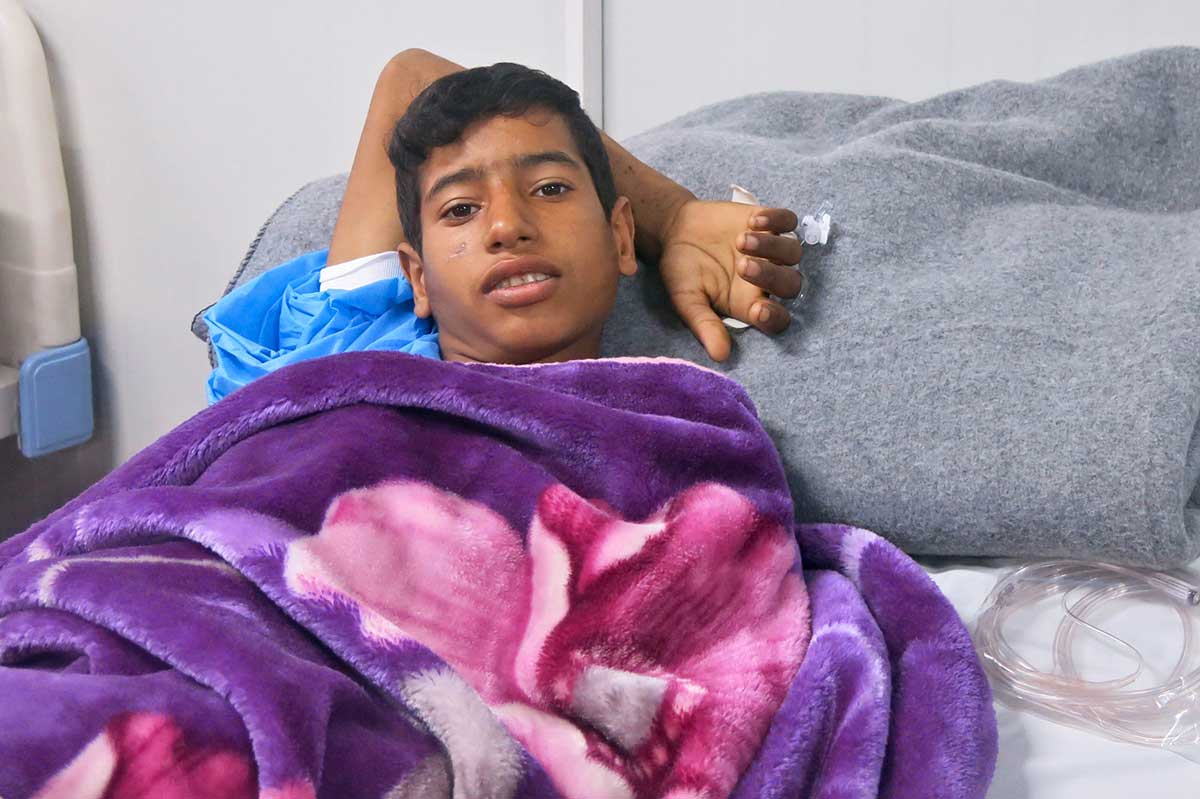Last week, Shoreditch High Street in London was evacuated after a suspected unexploded World War Two bomb was discovered, posing a threat to Londoners. A shocking reminder of the legacy of war, even decades after it’s over.
When our teams in Iraq tell me about the horrific journeys and the terrible violence people fleeing Mosul have to face I feel particularly overwhelmed because I know that even if they manage to escape, civilians will face danger for years to come.
Huge swathes of land in Mosul are littered with explosive remnants of war, weapons that haven’t exploded on impact. These explosive weapons can stay active for months, even years, just waiting patiently for someone to pick them up, before exploding.
Explosive remnants of war prolong the effects of a conflict even after it has ended.
Iraq is one of the world’s most mined countries in the world. Much of it is a legacy of wars carried out between 1980 and 2003, now made worse by the present conflict.
During a conflict, explosive weapons makes it dangerous for the local population to travel around conflict zones but also to return home when the fighting is over. Every day, in Iraq, our teams are meeting families who have had a mother, a father, a child injured by explosive weapons. Sadly children are the first victims of these horrific weapons. With the innocent of youth, they reach for brightly coloured things they see on the ground or in a bush. If they survive, their life is devastated, changed forever.

© E. Fourt/Handicap International
Children like Omar, a sixteen-year-old boy, who was injured this January in a town near Mosul.
He told our team: “I’d gone to join my friends for a game of football. While I was waiting for them on some waste ground, a small metallic object caught my eye. I walked over to it and then bent down to pick it up. As soon as I touched it, there was a huge explosion. I don’t remember much about what happened after that. I just recall the blood on my legs. And then I started to cry and call for help.”
Omar was seriously injured: both of his legs were broken and he had to have several fingers and toes amputated.
Children like Omar strengthen our resolve to protect the population from injuries from these horrific weapons. This is why our teams are not only treating victims of explosive weapons but we are also organising risk education sessions in the displacement camps and in the host communities around Mosul, and clearing the land of these deadly weapons, to reduce the chances of death or injury.
Besides killing and causing horrific injuries, explosive weapons spread terror and make people fear for their lives. Everyone needs to be able to identify and protect themselves from these kinds of weapons. It’s a question of survival.
Risk education sessions save lives by telling children and adults about the risks they’re likely to run into before they return home so they know what to do when in presence of these explosive weapons.
Children are one of the main targets for our organisation’s awareness-raising activities. Children are curious and don’t necessarily understand the dangers they’re exposed to; sometimes they might pick up an explosive weapon thinking it is a toy.
The level of contamination is unprecedented in Iraq: there are explosive remnants of war and improvised explosive devices in fields, homes, sometimes inside corpses, or behind refrigerator doors. Our weapons clearance experts have already destroyed more than one thousand explosive remnants of war in just a few weeks.
Since 2014, Handicap International has been supporting displaced Iraqis, working as close as possible to conflict zones, at times one of the very few NGOs present in the country.
To learn more about our life-saving work, check out our latest news or follow us on Facebook or Twitter.
Blog reposted from Huffington Post UK






